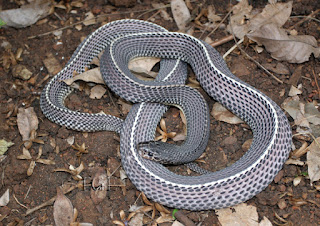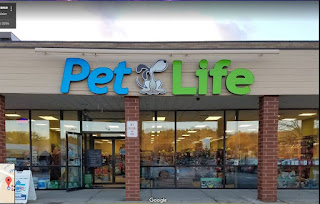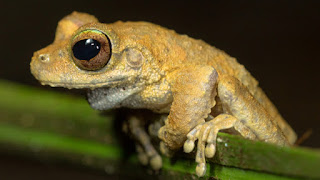Wildlife in Egypt - Types of Egyptian Animals
Sioux City Wildlife Rehabbers: 'You Gave Them Another Chance At Life'
SIOUX CITY — For most people, a group of baby squirrels taking up residence inside their house would prompt a call to animal control.
Like a handful of other area animal lovers, Stephanie Euchner welcomes the furry little critters into her Sioux City home.
She accepted five orphaned squirrels about three weeks ago, at first feeding them milk. Now it's a mix of squirrel feed and treats, watching them grow until they're old enough to be released back into the wild.
"I just like the satisfaction of helping the animals. It's a lot of fun releasing them. You gave them another chance at life," said Euchner, a wildlife rehabilitator for three years.
Stephanie Euchner cares for young squirrels at her Sioux City home. Euchner, who currently has five squirrels and an injured pigeon at her home, is one of a number of area licensed wildlife rehabilitators who care for sick, injured or abandoned animals until they're able to return to the wild.
Jesse Brothers, Sioux City JournalIt's a volunteer job that can take up as much time as a full-time job. Euchner, a licensed rehabber who's also caring for an injured pigeon, works both a full-time and part-time job, squeezing feedings of whatever animals she happens to be caring for at the time into her already busy schedule with the help of her husband, Tyler.
People are also reading…
"It is a big commitment," said Amanda Hase, director of the nonprofit Forever Wildlife Lodge & Clinic, a network of wildlife rehabbers to which Euchner belongs.
Taking in sick, injured and orphaned wild animals can amount to a full-time job on top of whatever career one might have, Hase said, especially at this time of year, when everyone, it seems, is finding baby squirrels, bunnies and other animals in their yards and calling her to save them.
Young squirrels climb inside a cage inside licensed animal rehabilitator Stephanie Euchner's Sioux City home. Euchner received the abandoned baby squirrels about three weeks ago, and said they should be ready for release back into the wild in June.
Jesse Brothers, Sioux City Journal"People call all hours of the day. We don't get a lot of sleep during baby season," said Hase, who receives 50-100 calls a day from April through June, the majority of them pertaining to baby animals. Responding to those calls and arranging for someone to take in the animals equates to a second full-time job on top of her regular job. The nights of waking up every two hours to feed a litter of baby coyotes or an injured fox are worth it.
"It's a lot of sleepless nights. It's tears. It's frustrating. It's a lot of work," Hase said. "I absolutely love what I do or I wouldn't do it. It's very rewarding."
Like other rehabbers, Hase and Euchner have a soft spot in their hearts for animals.
Euchner's parents rescued wild animals, an example that helped lead her into animal rescue. Hase was recruited by another rehabber and had previously done pet rescue. That was around 2012, long before her garage became a sanctuary for rehabbing animals and she became a mentor to apprentice rehabbers, helping them earn their wildlife rehabiltation licenses from the Iowa Department of Natural Resources. It's illegal to possess a wild animal in Iowa, so rehabbers must be licensed to take in wildlife.
The DNR does not rehabilitate animals, so those licensed rehabbers are valuable resources for DNR officers who often get calls about injured or abandoned animals.
A young squirrel is growing and nearing return to the wild at licensed wild animal rehabilitator Stephanie Euchner's Sioux City home. Euchner and other local rehabbers care for dozens of sick, injured and abandoned animals every year.
Jesse Brothers, Sioux City Journal"They're alleviating a lot of calls that might come directly to us. A lot of time, I don't even get the calls anymore," DNR conservation officer Stacey Bragg said. "For these people, especially volunteers that have been around for decades, it's amazing. There's a huge amount of passion."
Passion and expense. Hase is constantly fundraising to support Forever Wildlife, which last year spent $15,000 just on formula for baby animals. Other expenses include veterinarian services, medicine, supplies and transportation costs to drive injured animals such as eagles to specialized rehabilitation organizations. With 2,200 animals taken in and cared for during 2023, fundraising didn't cover it all.
"We all spend our own money doing this," Hase said.
In addition to baby squirrels, licensed wild animal rehabilitator Stephanie Euchner is caring for an injured pigeon at her Sioux City home. Euchner said the pigeon was missing many feathers when it was rescued but it regaining its health while it awaits release back into the wild.
Jesse Brothers, Sioux City JournalIt's worth it though. Hase loves the challenge of helping an injured animal heal, even if it means sleepless nights and out-of-pocket expenses. The payoff is watching a bald eagle whose wing was broken once again take flight or seeing a fox whose leg was shattered regain full health and return to the wild.
"There's something to seeing that animal go back in the world and knowing you made a difference," Hase said.
Rehabbers know not every animal they take in will survive. But for dozens of animals every year, those rehabbers are the difference between life and death.
Amanda Hase, director of Forever Wildlife Lodge & Clinic feeds one of several baby coyotes that were recently in her care until they were taken to a specialized rehabilitation facility. Hase, a licensed wild animal rehabilitator said she'll take in just about any animal except skunks and bats, who she refers to other rehabbers.
Provided by Amanda Hase, Forever Wildlife Lodge & ClinicThis otter was one of the more uncommon animals Amanda Hase, director of Forever Wildlife Lodge & Clinic, has welcomed into her home since becoming a licenses wild animal rehabilitator.
Provided by Amanda Hase, Forever Wildlife Lodge & ClinicYoung animals like this owl are commonly taken in by licensed wild animal rehabilitators at this time of year. Rehabbers advise people who find baby animals they think are abandoned to leave them alone because the mother usually is nearby and will return for them.
Provided by Amanda Hase, Forever Wildlife Lodge & ClinicLocal licenses wild animal rehabilitators have cared for their share of injured or orphaned foxes over the years. Though not every animal they take in survives, most eventually are returned to the wild.
Provided by Amanda Hase, Forever Wildlife Lodge & ClinicThe Journal's Jared McNett shows how to download and browse the Sioux City Journal's app.
Jesse BrothersGet local news delivered to your inbox!
Deputy Rescues Baby Rabbits Tied In Bag, Thrown Out Of Car
MACOMB TOWNSHIP, Mich. (WXYZ) - A Michigan sheriff's deputy rescued a bag full of baby rabbits after they were thrown from a car and left to die.
Macomb County Sheriff's Deputy Taylor Dibble was dispatched Monday after a concerned citizen called around 7 p.M. To report they saw a person throw "something suspicious" out of a car window in their neighborhood.
The suspicious item turned out to be a plastic bag full of baby rabbits. Dibble says the bag had been tied with multiple knots and had an airtight seal.
"I see a little bunny's head poked out. Its little nose is twitching. It's suctioned around this guy's neck – can't breathe, no oxygen. I rip out my key [and] tear into the bag to get these bunnies out. There's eight of them in there," she said.
Sadly, one of the rabbits died, but the others are recovering at the Detroit Animal Welfare Group, a wildlife rehabilitation center located in Romeo.
Deputy Taylor Dibble saved several baby rabbits from a plastic bag tied with multiple knots that someone threw out of a car window.(Source: Macomb County Sheriff's Office, WXYZ via CNN)"They were left there to suffocate or starve and die. That's very, very sad. They were very hypothermic and dehydrated when we received them," said Kelly LaBonty, the director of the center.
LaBonty says the rabbits were 12 to 14 days old and would have been unable to survive on their own.
"So, they were put in an incubator to keep warm, and we're feeding them. We will keep them until they're almost 1 month old, and then, they'll be ready for release," LaBonty said.
Dibble is glad she could help, calling it the best part of her job.
"Being able to take this hopeless call, really, and finding these super, super small babies. Giving them to this facility and getting hope back from it, it's everything," she said.
Deputies say the suspect was a younger to middle-aged white male driving a small, red Chevrolet car. Dibble says the witness reported seeing the suspect in the area previously. Anyone with information is asked to contact the Macomb County Sheriff's Office.
Although the suspect's motives are unknown, LaBonty says anyone dealing with unwanted wildlife on their property should call a local wildlife rehabilitator.
Copyright 2024 WXYZ via CNN Newsource. All rights reserved.
Officials: Wildlife Rehabilitator Took Raccoons Into Her Merrick Home Without Required Rabies License
A wildlife rehabilitator is accused of going rogue by accepting raccoons at her Merrick home without a required rabies license.
State officials say they inspected the woman's house when they received reports of raccoons escaping and roaming free in the woman's car. There were also calls about dead raccoons being thrown in the garbage.
Officials say they also found a morning dove and eastern box turtle, which the woman is not permitted to have, along with a lot of squirrels.
The woman is facing several violations and her license is under review by the Department of Environmental Conservation.





Comments
Post a Comment